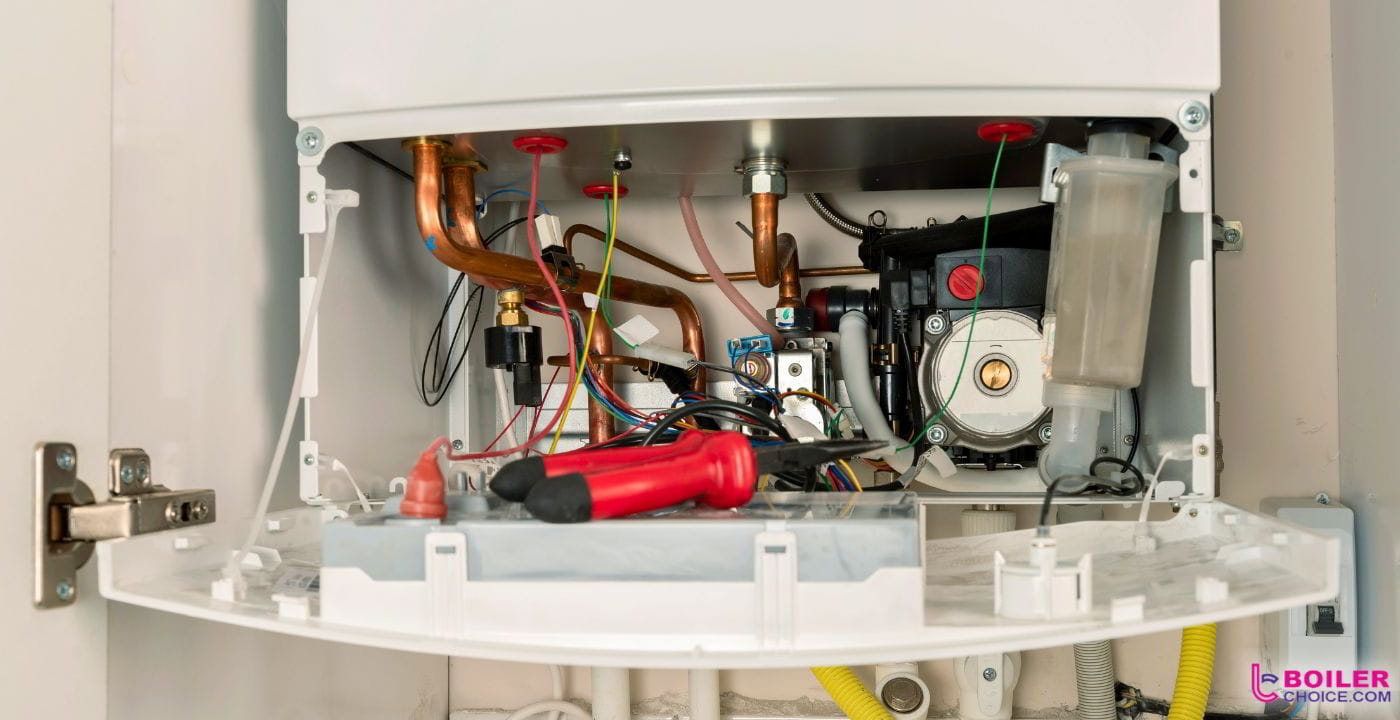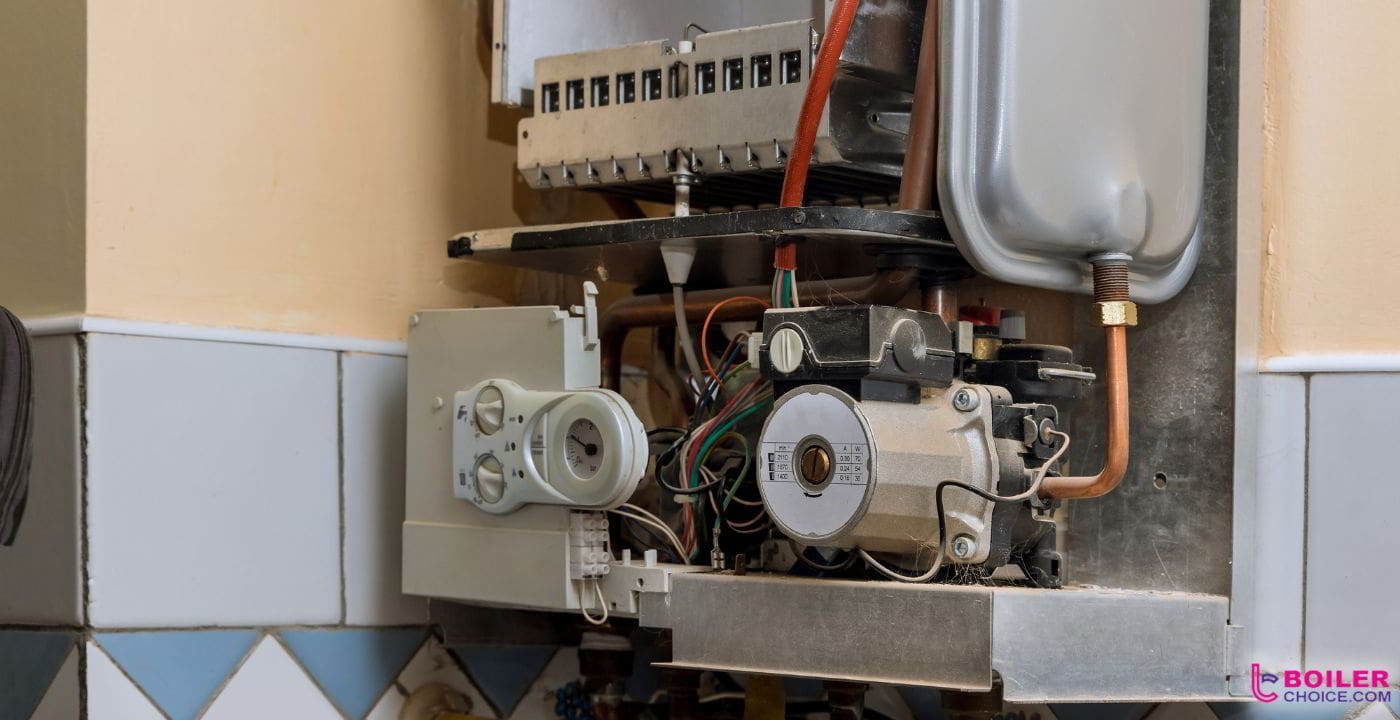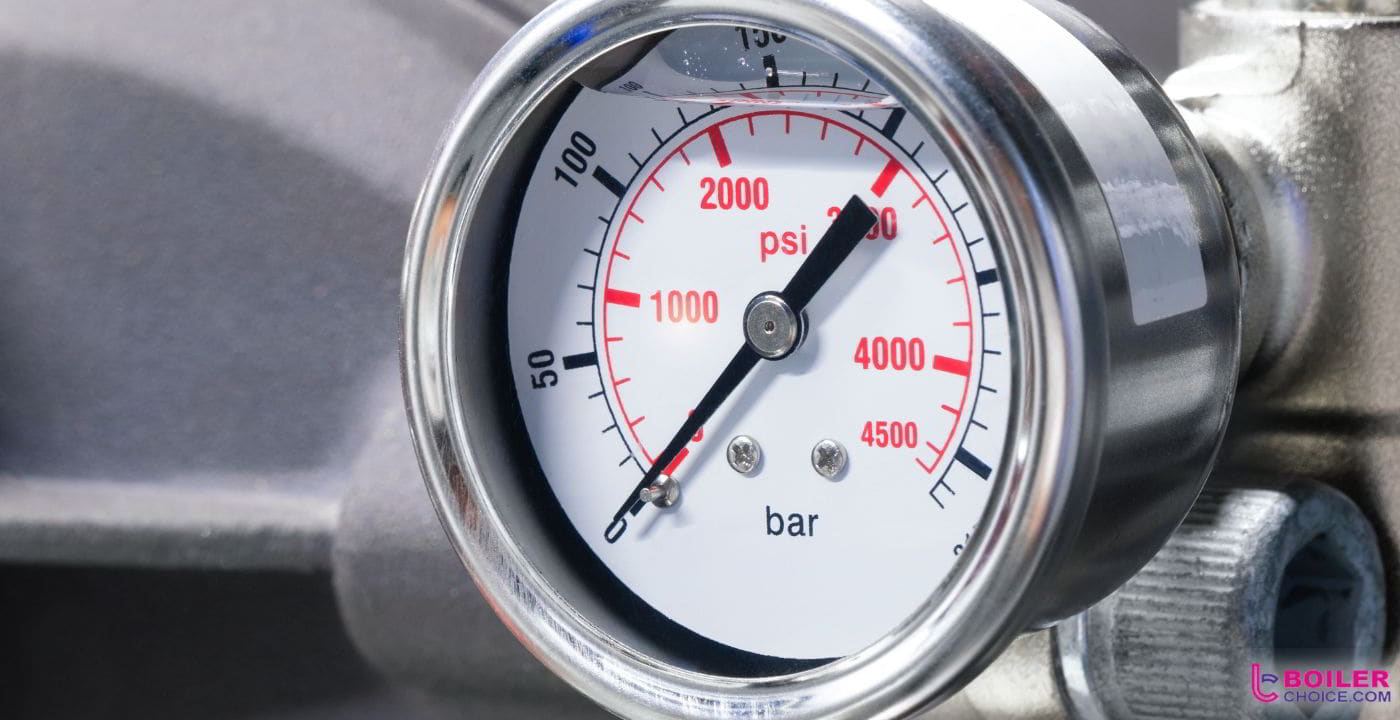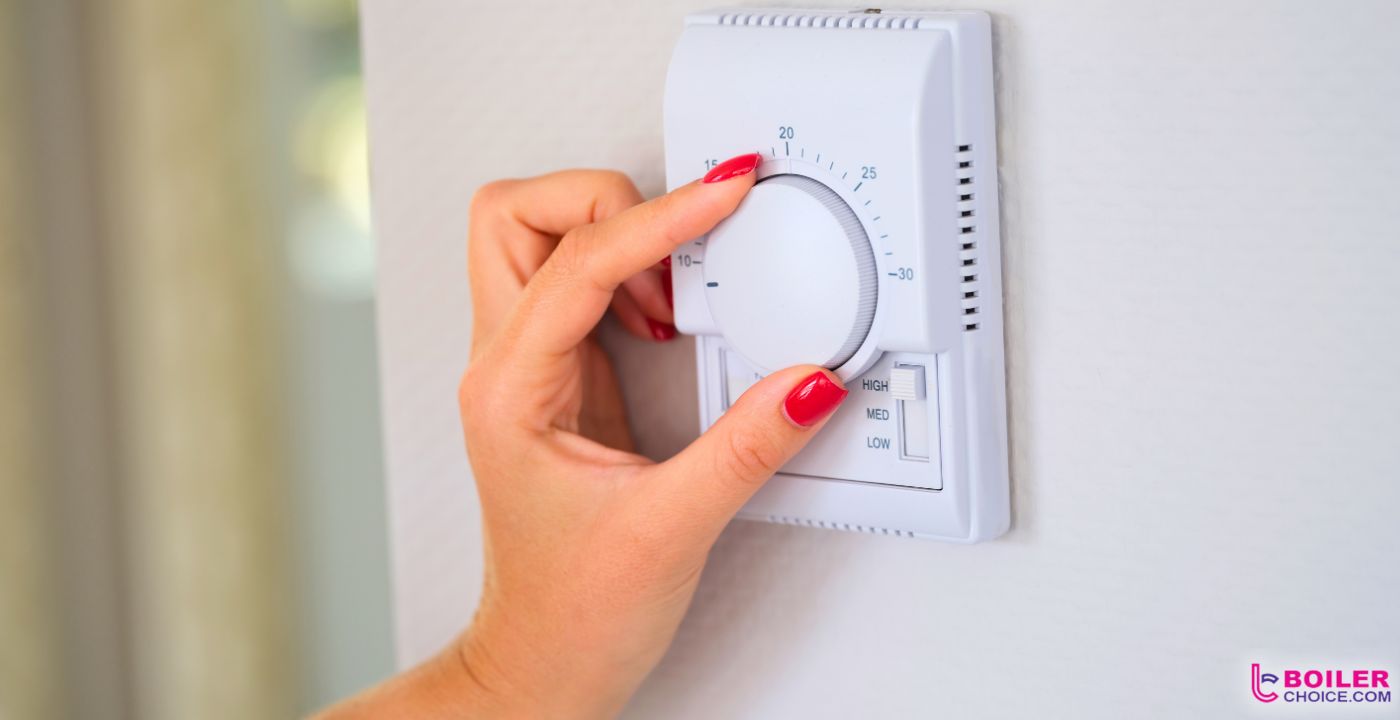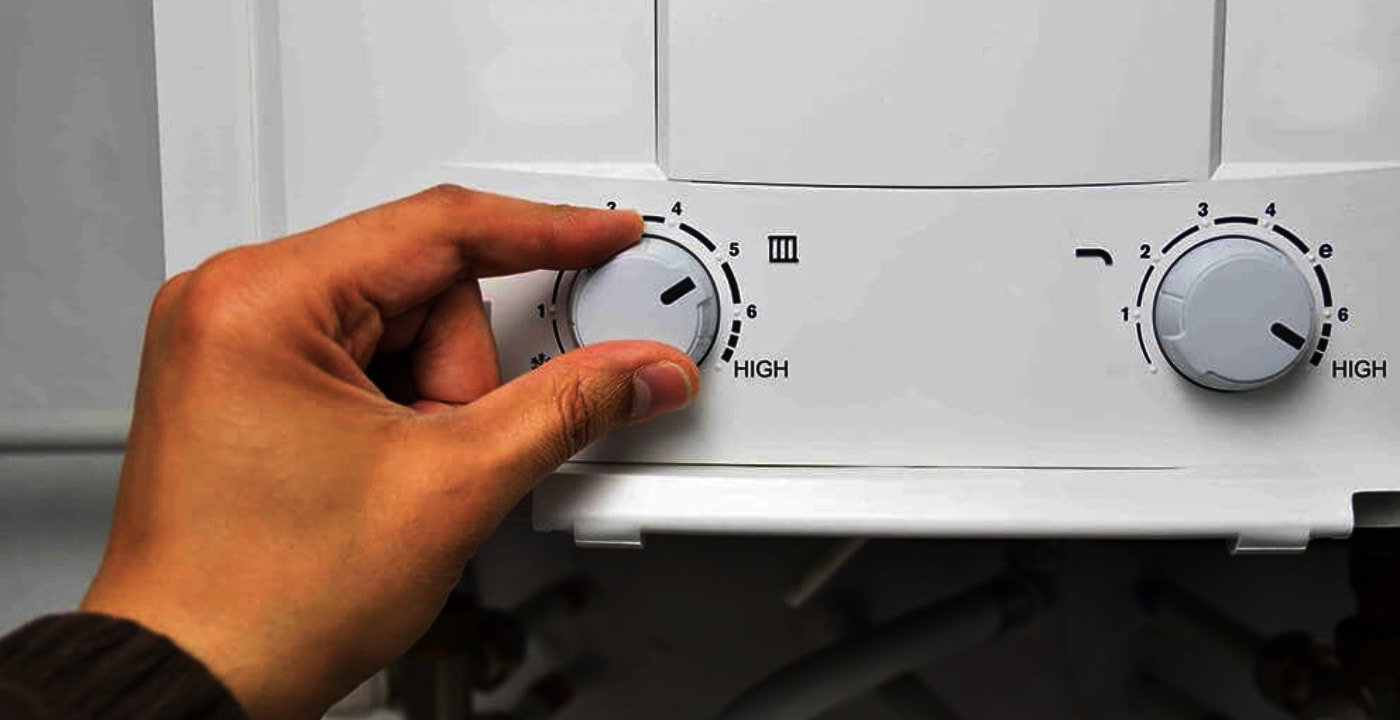
Key Notes:
- The best boiler temperature in winter varies based on boiler type and personal comfort.
- Lowering your thermostat by just one degree can noticeably reduce your heating bills.
- Adjust boiler temperature according to weather conditions.
- While turning off your boiler in winter can save energy, avoid doing so during extreme cold to prevent freezing pipes.
- Pressure loss in boilers can occur due to various factors, including cold weather and system leaks.
- Adjust boiler and hot water temperatures for maximum efficiency and comfort.
What is the Best Boiler Temperature in Winter?
The best temperature for a boiler during the winter months can vary, depending on the type of boiler you have, your personal comfort levels and the mildness or severity of the winter conditions. For condensing combi boilers, for instance, we’d advise setting the radiator flow temperature between 60°C and 70°C for a combination of winter comfort and efficiency.
Conventional system boilers with separate hot water cylinders should have the boiler thermostat set above 65°C (for safety reasons), with the hot water cylinder thermostat itself not set below 60°C. The boiler flow temperature should always be higher than the hot water cylinder temperature
A Central Heating Top Tip!
A simple but effective tip is that lowering the temperature on your thermostat by just 1°C can significantly reduce heating bills without a noticeable decrease in comfort. Using an arbitrary figure as an example, let’s say your winter heating bill is £1,000 across December, January and February.
Turning down your thermostat by one degree over an 8-hour period can save you between 1-3% on overall energy costs. Therefore, you could be saving £10-£30 on your energy bill as a result – it all adds up!
Should I Turn My Boiler Up in Winter?
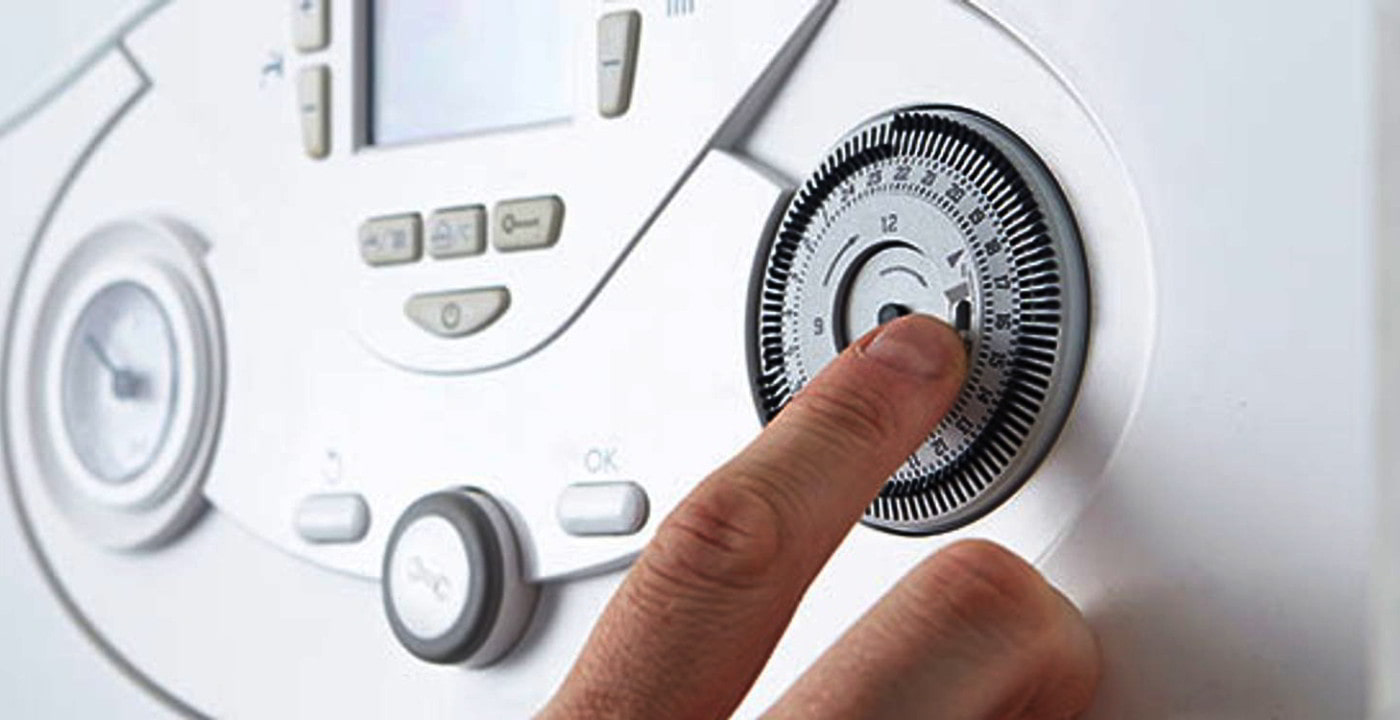
Adjusting the boiler temperature based on the weather conditions is key. For milder winter weather, combi boilers can be set to lower flow temperatures, around 50 or 55°C. However, during periods of extreme cold, you may want to set the temperature a bit higher.
ℹ Remember, conventional boilers cannot go below 65°C for safe operation.
Turning Boiler Off in Winter – Should You?
If you’re planning to be away for an extended period during the winter months, then you might think that the ideal boiler temperature is zero so as to save some money – i.e. you might consider switching off your boiler whilst you’re away enjoying that winter sun elsewhere. However, during periods of extreme cold, it’s not recommended to turn off your boiler as this can result in frozen pipes and heating issues. Instead, you can:
- Lower the temperature setting: Adjusting the temperature setting to a lower value, such as the frost protection mode, can prevent freezing while minimizing energy usage.
- Set a timer to prevent frost: Use a timer to maintain a minimum temperature that prevents frost from forming in your heating system. This ensures the pipes and radiators stay above freezing temperatures, reducing the risk of damage.
- Use a smart thermostat to control your heating remotely: Invest in a smart thermostat that allows you to control your heating remotely. With this technology, you can adjust the temperature settings even when you’re away, ensuring your home is warm and protected from freezing.
Why Does My Boiler Lose Pressure in Winter?
Cold weather can put added strain on your boiler, leading to an increase in pressure. If you’re running your system at high temperatures during winter, this can put further strain on the boiler’s parts. Pressure loss can occur due to the release of air or water from radiators, leaks in the system, or corrosion in pipes and radiators.
Boiler Water Temperature
During different seasons, it’s advisable to adjust your boiler temperature settings based on the weather conditions.
Conventional Boilers
For conventional boilers, the boiler flow temperature should be at least 65°C to prevent the growth of Legionella bacteria in the hot water cylinder, which can lead to Legionnaire’s disease. In summer, you might want to keep it at this lower figure, whilst in winter you might increase it to 70-80°C.
Combi Boilers
It’s slightly different when it comes to combi boilers. In the summer (or milder transitional seasons), it’s best to aim for lower flow temperatures between 50-55°C for an efficient boiler temperature that still offers comfortable heating. During winter and the colder months, however, higher temperatures of 60-70°C are recommended. This is set using the dial with the radiator icon by it.
For your hot water needs, it’s advisable to keep the water temperature around 50°C. This provides a balance between performance, comfort, and efficiency, reducing the risk of scalding while ensuring sufficient hot water. This is controlled using the dial with the tap/water icon by it.
| SEASON | COMBI BOILERS | CONVENTIONAL BOILERS |
|---|---|---|
| Winter | 65 °C | 80 °C |
| Spring | 55 °C | 70 °C |
| Summer | 50 °C | 65 °C |
| Autumn | 55 °C | 70 °C |
Final Thoughts
In conclusion, determining the best boiler temperature for winter requires considering the type of boiler you have, your personal comfort preferences, and the severity of the weather conditions. For condensing combi boilers, a radiator flow temperature between 60°C and 70°C strikes a balance between winter comfort and efficiency.
Conventional system boilers with separate hot water cylinders should have the boiler thermostat set above 65°C for safety reasons, with the hot water cylinder thermostat not set below 60°C. It’s important to ensure that the boiler flow temperature remains higher than the hot water cylinder temperature.
A valuable tip to reduce heating bills is to lower the thermostat temperature by just 1°C, which can result in noticeable savings without compromising comfort. Adjusting the boiler temperature based on weather conditions is crucial, as milder winters may allow for lower flow temperatures, while periods of extreme cold may require higher temperatures.
While it may be tempting to turn off the boiler when away during winter, it’s not recommended, as this can lead to frozen pipes and heating issues. Instead, consider lowering the temperature setting, using a timer to prevent frost, or employing a smart thermostat for remote heating control.
This blog was written in collaboration with Eddie Scoffin, the founder of Boiler Choice. Eddie has been installing boilers for over a decade. With a passion for excellence and customer satisfaction, Eddie’s leadership and expertise have been instrumental in the success of Boiler Choice. His commitment to making the boiler installation process hassle-free for customers has earned him a respected reputation in the industry.
Updated on June 12, 2023


